1. At #ICA20 our brilliant research team will speak about topics such as news inequalities, news literacy, populism and social norms.
🧶A few insights in this thread
📱Titles and abstracts in the link below
reutersinstitute.politics.ox.ac.uk/risj-review/he…
🧶A few insights in this thread
📱Titles and abstracts in the link below
reutersinstitute.politics.ox.ac.uk/risj-review/he…
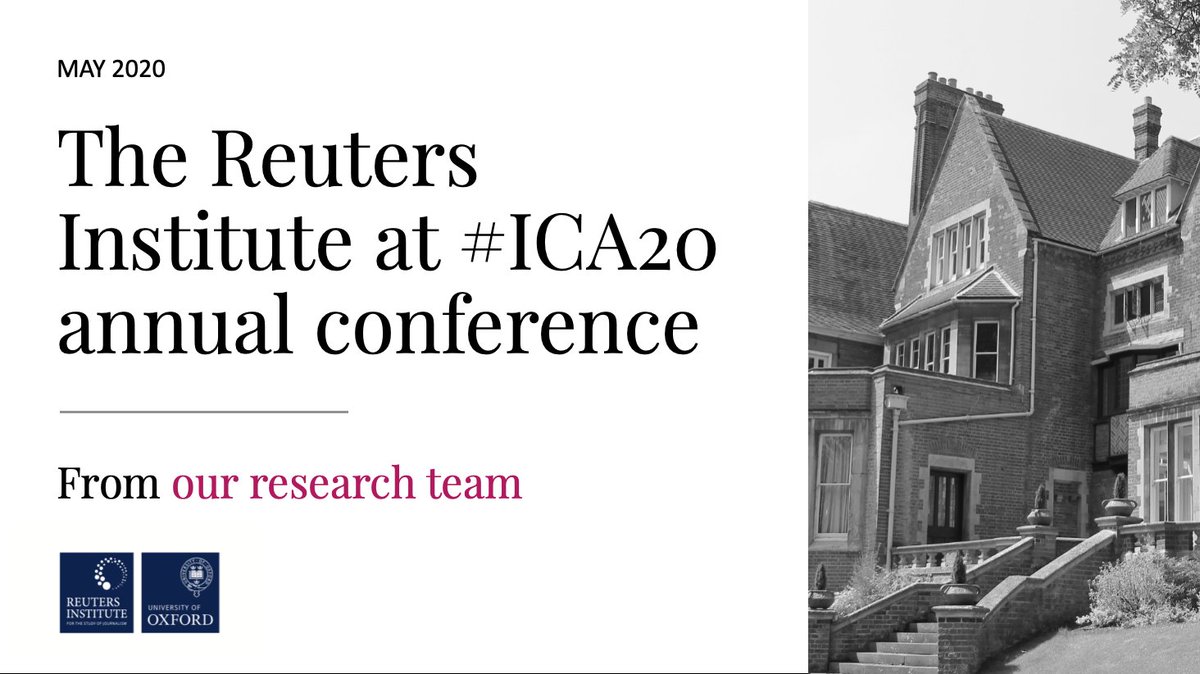
2. Concern over the spread of misinformation on social media has amplified calls to improve news literacy. @annisch, @dragz and @rasmus_kleis investigated the relationship between news literacy and social media use in five countries. Key findings below 
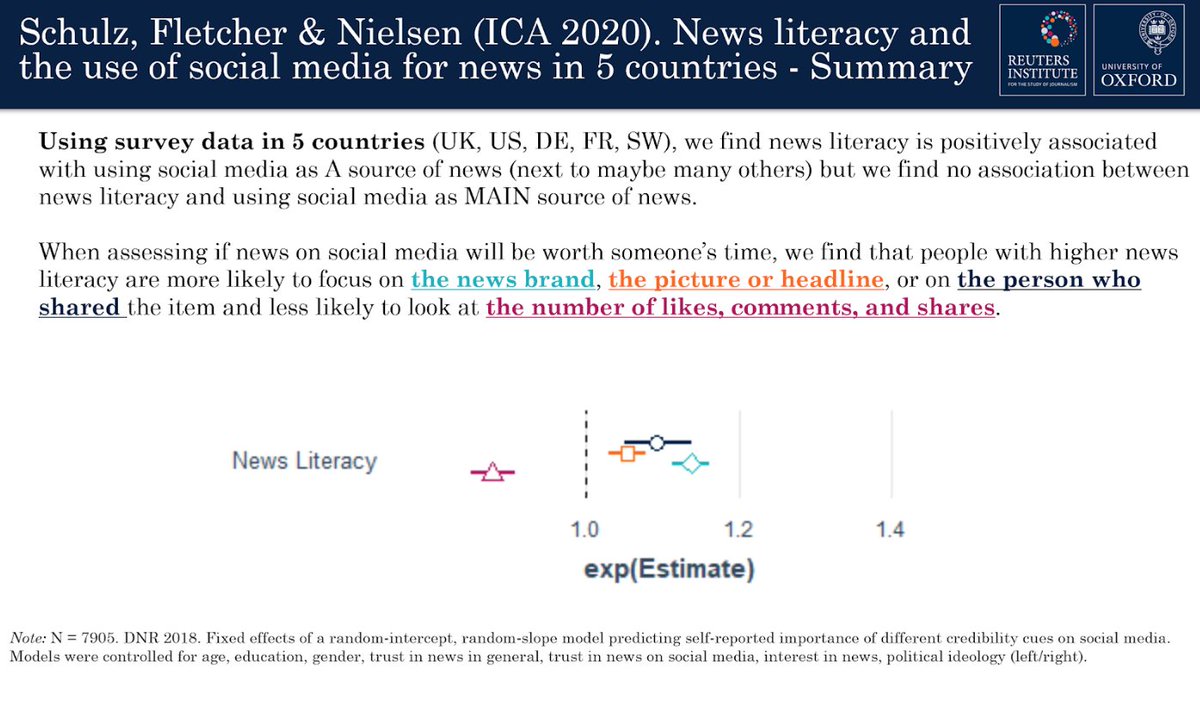
3. In this online survey experiment, @simgandi tested the effect of a nudge on reducing the dissemination of false news on social media. Using the social norms theory, she examined whether a cheap and easy solution could reduce the willingness to share false news.
Her analysis showed that a message that encourages verifying information before sharing on social media on top of an article can reduce the willingness to share false news by 5 percentage points. Key findings below 
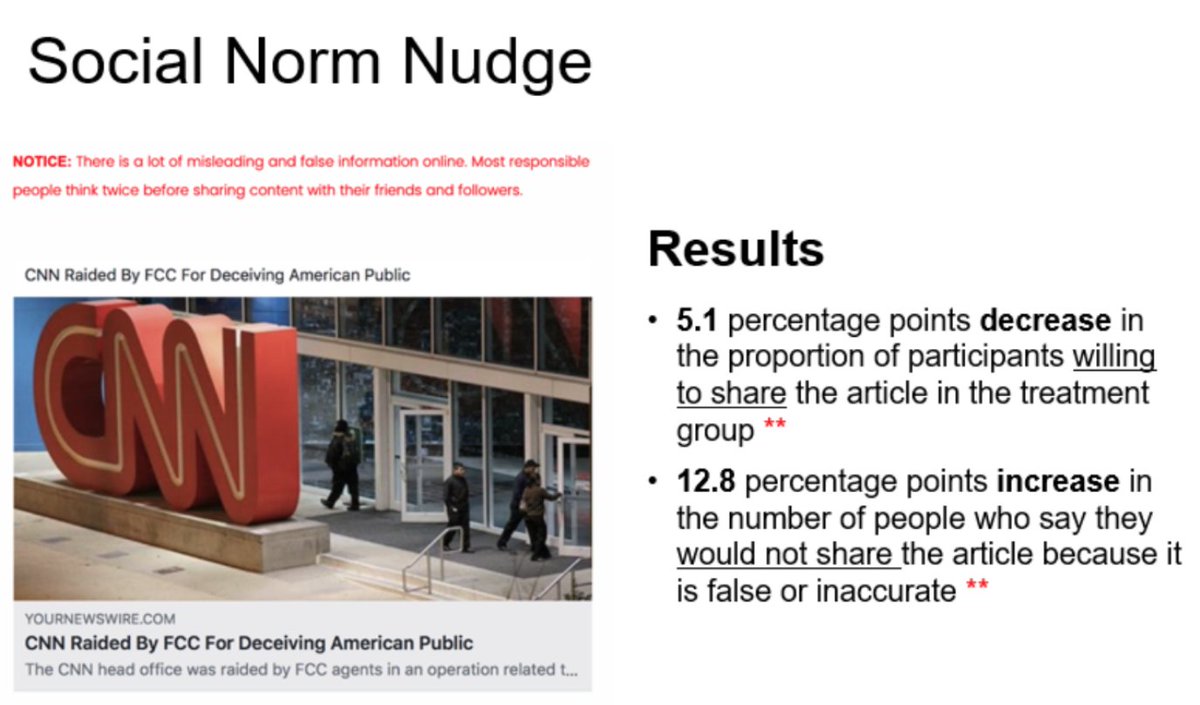
4. @dragz @antoniskalog @rasmus_kleis found that the more people go direct to news, the less diverse and less partisan their news diets are. The more they access news via social, search and aggregators, diets become more diverse but also more partisan. See charts below 
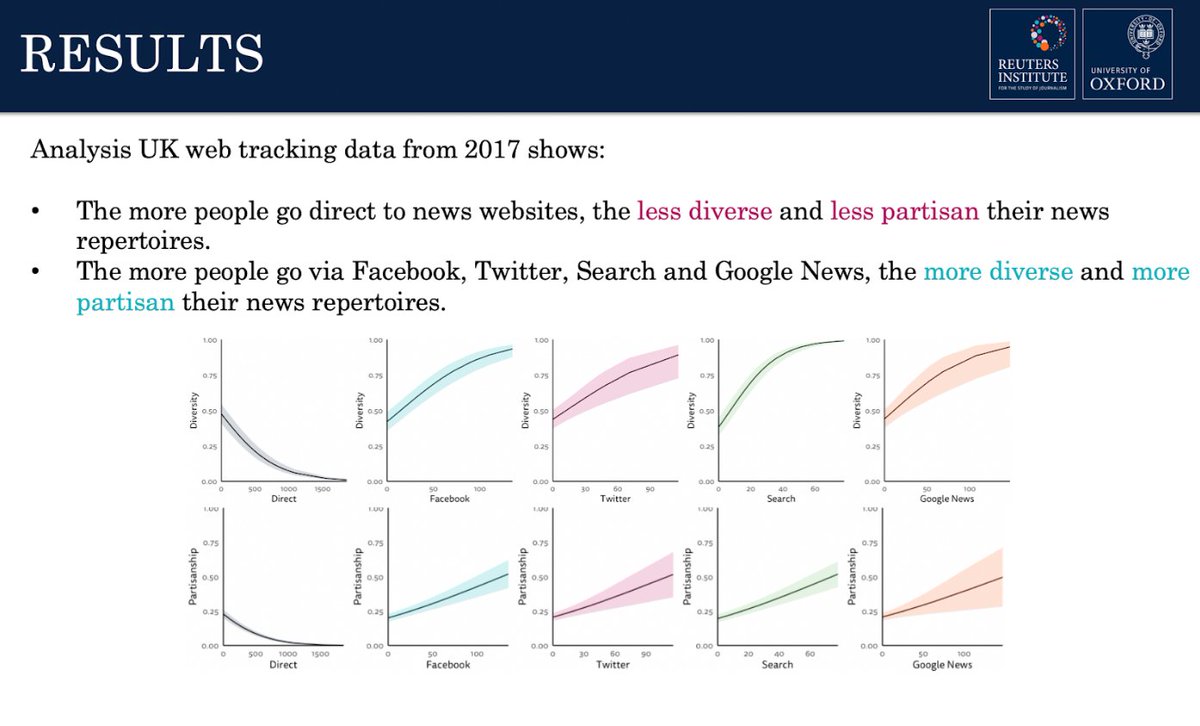
5. @dragz @annisch @rasmus_kleis find that across 36 news markets people who do not intentionally use social media for news still have broader news diets than people that do not use social media at all -with the effect stronger in countries with higher internet penetration 
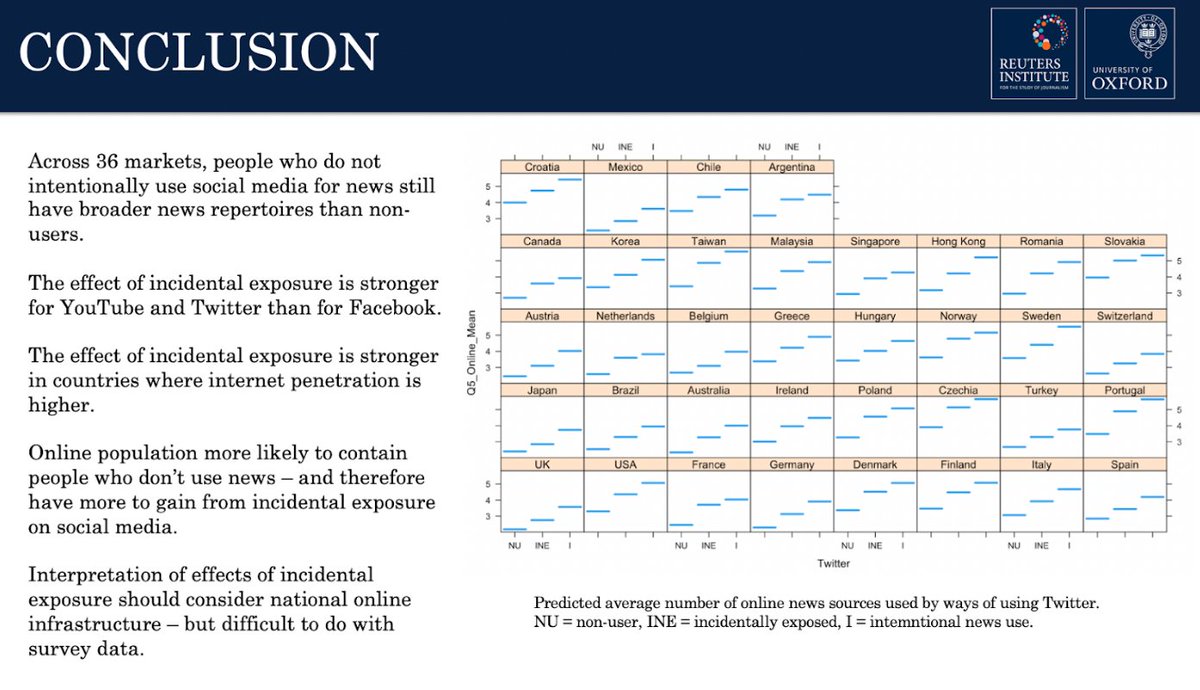
6. Our Director @rasmus_kleis took part in an #ICA20 panel on #COVID19 w/ @claesdevreese Hye-Jin Paek @JuliavanWeert @scheufele & @LeticiaBode
Read his remarks & watch the panel here
reutersinstitute.politics.ox.ac.uk/risj-review/we…
Read his remarks & watch the panel here
reutersinstitute.politics.ox.ac.uk/risj-review/we…
7. @rasmus_kleis has also written this long post on what communications research can offer during the pandemic #ICA20 rasmuskleisnielsen.net/2020/05/22/com…
8. You can find the titles and abstracts of the #ICA20 talks of our research team in the link below. Attendees can watch them in the @icahdq website
reutersinstitute.politics.ox.ac.uk/risj-review/he…
reutersinstitute.politics.ox.ac.uk/risj-review/he…
Today our research team watched and discussed sessions from @icahdq #ICA20. A tweet from our research team leader here
https://twitter.com/dragz/status/1263846622879977477?s=20
More on our research on #newsliteracy in this thread by @annisch
https://twitter.com/annisch/status/1263854137764130819?s=20
• • •
Missing some Tweet in this thread? You can try to
force a refresh













